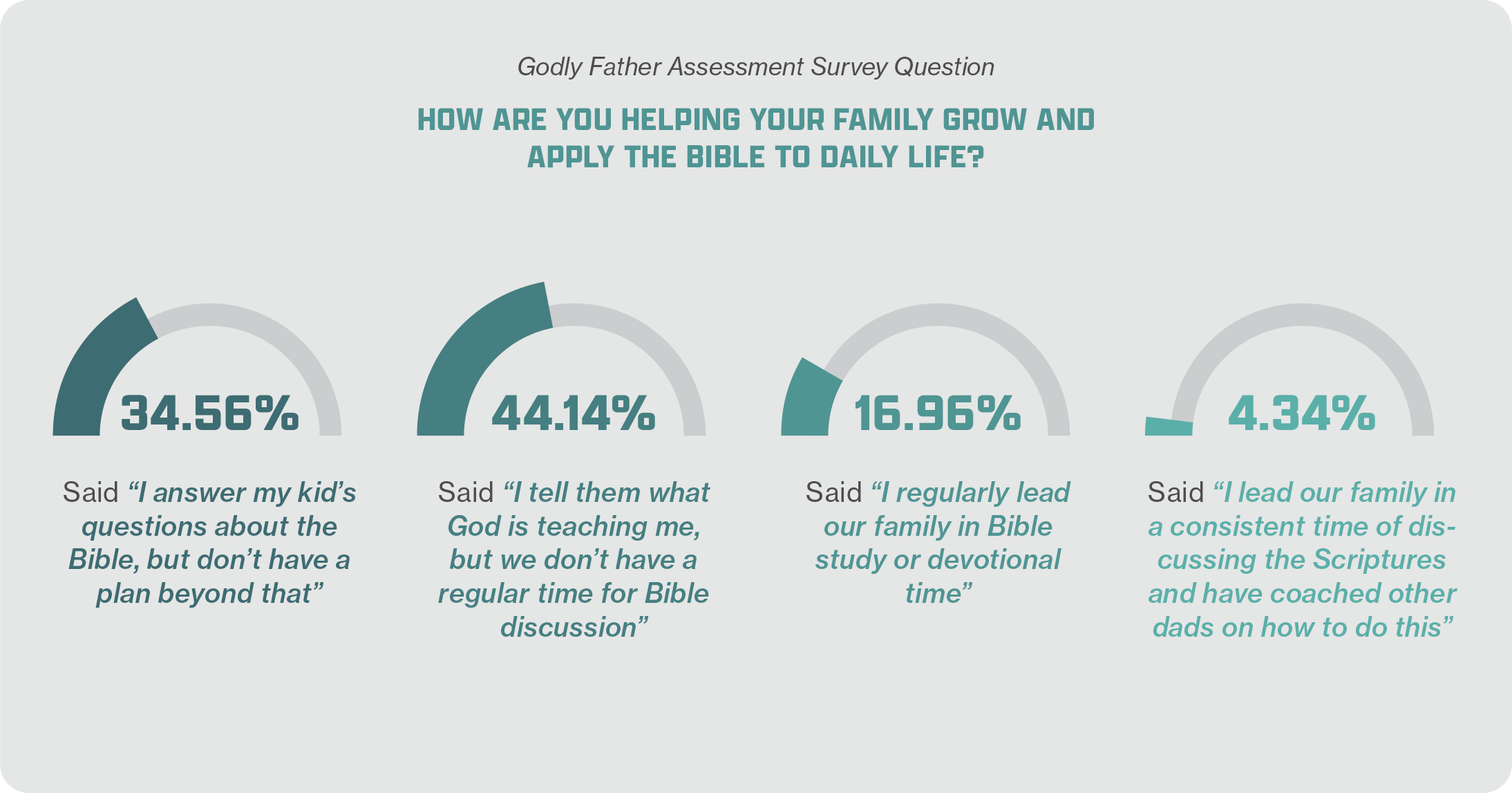Why so few dads are praying with their families—and how the church can help restore what’s been lost.
Recently, as I tucked my boys into bed, I asked what they’d like to pray about. My oldest paused, then said, “One of my friends—I don’t think he knows Jesus. I want to pray he gets saved.”
So I asked, “Would you like to pray for him?”
He nodded and began.
There’s a particular kind of joy that swells in a parent’s chest when they hear their child speak to God—not out of obligation, but from the overflow of love and concern. As I listened, I heard something remarkable: not only his voice, but traces of my own. Phrases he’s heard from me and his mother. Theology he’s absorbed through years of bedtime prayers and quiet moments around the table.
That kind of formation doesn’t happen by accident. It’s the fruit of repetition. Of presence. Of prayer becoming a way of life.
And yet for many Christian fathers, prayer in the home feels unfamiliar, even inaccessible. The State of Biblical Fatherhood report confirms what some pastors have long suspected: most fathers want to lead spiritually, but few are praying regularly with their families.
I. Why So Few Fathers Are Praying with Their Families
The report tells us that less than 17% of practicing Christian dads pray with their family on a regular basis. While more fathers are praying with their kids before meals or bedtime, the vast majority are not leading their family in prayer outside of those routines.

For many, it’s not a lack of belief—it’s a lack of confidence. Some were never taught how to pray themselves. Others fear doing it “wrong,” stumbling over words or sounding too formal. Some carry spiritual shame from past failures, unsure whether their voice still holds weight in their own home.
Still others simply don’t know where to begin. Life is fast. Kids are noisy. Work is demanding. Prayer gets squeezed out by the tyranny of the urgent.
But if we want to raise children who walk with God, we must teach them to talk with Him. And that begins with fathers rediscovering the sacred rhythm of prayer—not just in church, but in kitchens, living rooms, and bedrooms across the country.
II. Cultivating a Prayer Life That Shapes the Home
Rebuilding a culture of prayer in the home doesn’t require seminary training or a complex devotional system. It requires faithfulness, intentionality, and a willingness to start small.
Here are three formative ways fathers can bring prayer back into the life of their family:
1. Let Prayer Be a Natural Part of Your Day
You don’t have to schedule a revival meeting to begin. Pray when the family car won’t start. Pray before the first bite of dinner. Pray when someone gets hurt or when good news arrives. Let your kids see that prayer isn’t a performance—it’s a way of being.
They need to see that God is not a distant figure to be summoned with special words, but a Father who listens in real time.
2. Make Space for Their Voices
Fathers often carry the burden of having to “get it right.” But part of spiritual leadership is creating space for others to grow. Let your children pray—messy, simple, unfiltered prayers. You’ll hear gratitude for stuffed animals and requests for extra dessert—but over time, you’ll also hear glimpses of faith taking root.
We’ve found that rotating prayer at the dinner table is a gentle way to build that habit. No pressure. Just presence. Every voice matters.
3. Remember—and Retell—Answered Prayers
When God responds, don’t move on. Pause. Celebrate. Whether it’s a lost item recovered or an anxious heart calmed, let your children know that prayer is heard. And when prayers aren’t answered in the way we hoped, help them see that God is still good, still sovereign, still near.
Prayer isn’t just a formula; it’s a conversation. And conversations shape relationships.
III. How Churches Can Help: Engage, Equip, Empower
If prayer is missing from the home, the solution isn’t just a better devotional—it’s a better discipleship strategy. That’s where the church can step in.
Engage Fathers with Invitation, Not Expectation
Many dads feel spiritually disqualified before they’ve even begun. They don’t need more pressure—they need a pastor or mentor who says, “Let’s walk through this together.” Use stories. Share struggles. Be honest about your own journey in prayer. When men hear they’re not alone, they’re more likely to lean in.
Create intentional spaces—men’s groups, family ministry events, Sunday school classes or small groups—where prayer isn’t just talked about, but practiced.
Equip Fathers with Confidence and Tools
Equip your men like you would your elders or teachers—because they are, in a very real sense, the pastors of their homes. Give them tools that are simple, reproducible, and grace-filled:
- A 5-minute bedtime prayer guide
- A one-page list of prayer prompts for children
- A Sunday handout that includes a “family prayer moment” to try that week
Don’t assume they know what to do. Show them. Walk with them. Celebrate small wins.
Empower Fathers with Identity and Vision
Finally, help fathers see who they are. They are not spiritual backups. They are the first line of spiritual formation in the lives of their family. They’ve been called—not to impress, but to intercede.
The same Spirit that empowers you as a pastor is available to every dad in your church. Speak that truth over them. Commission them. Give them permission to lead, to try, to pray out loud—even if their voice trembles.
When fathers begin to pray with conviction, homes begin to change.
A Word for Leaders—and the Men They Lead
Pastors, if you long to see revival in your church, look to the family. Equip the fathers. Empower the men. Encourage them in and through prayer.
And to the fathers reading this: you don’t have to pray perfectly. You just have to show up. Let your children see you talk to your heavenly Father—and they’ll be far more likely to do the same.
Because when Dad prays, the whole family listens.












